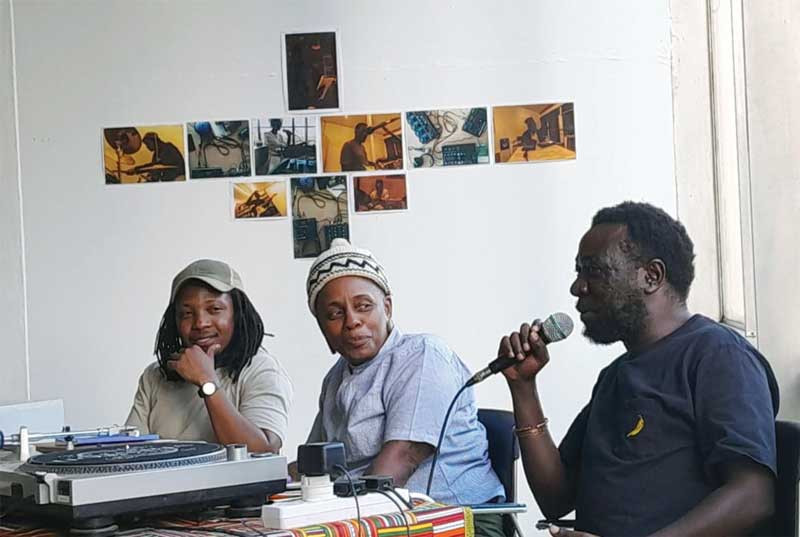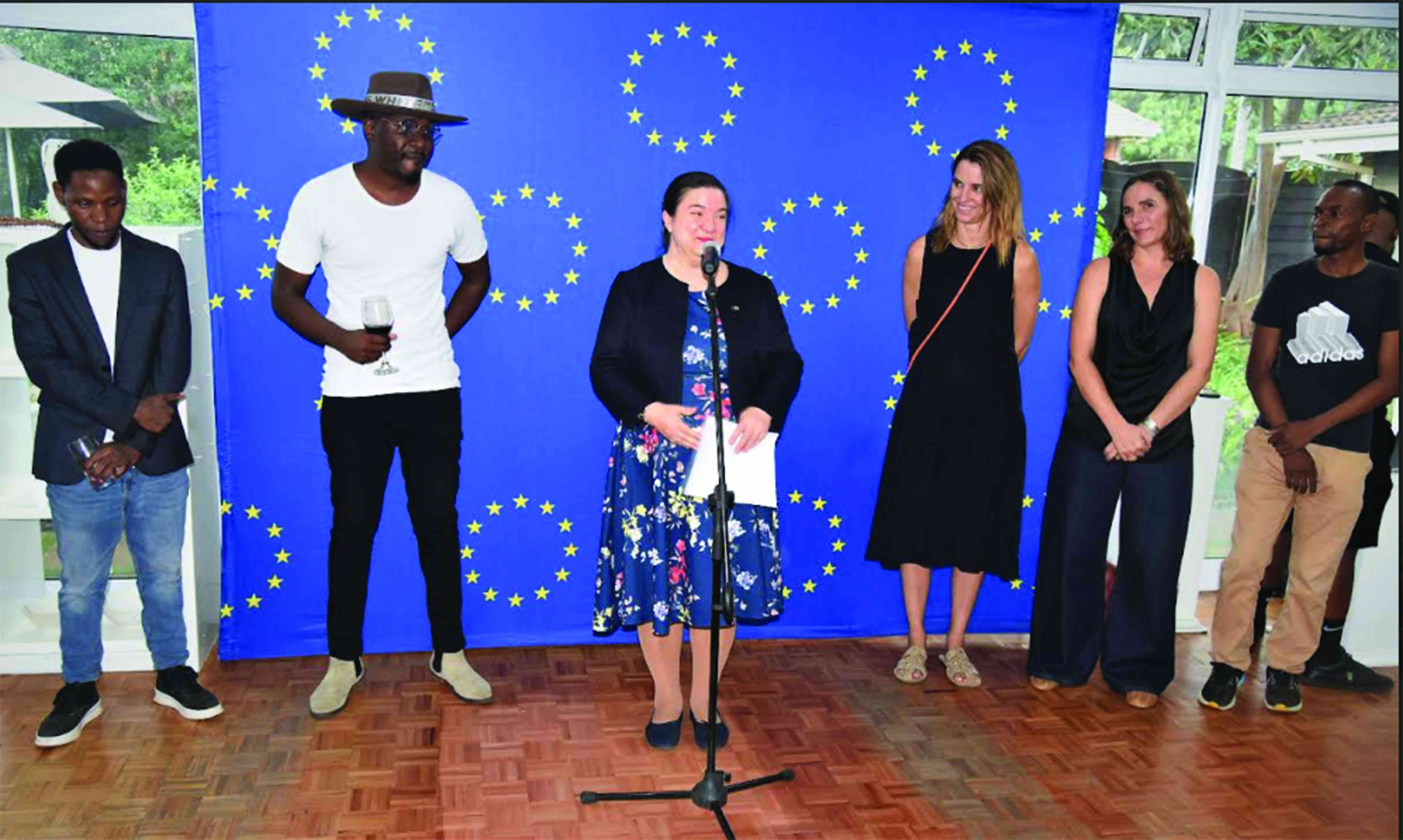
American disc jockey and scholar, Lynnée Denise, recently embarked on a journey to Zimbabwe following the publication of her book about Blues musician Willie Mae Thornton titled Why Willie Mae Thornton Matters.
She made an appearance at the DJ Scholarship & Black Music Geographies: The Zimbabwe Sessions, an event curated by Dark Art Matters. The event took place at Ela The Garden in Newlands, Harare, on January 24 and featured multidisciplinary artist Thandiwe Gula-Ndebele.
Another thought provoking discussion with the theme “Encounters: A Listening: From the Bluest Eye to the Blackest Sunlight” was hosted two days later at the National Gallery of Zimbabwe in Harare. The session, coordinated by Tinofireyi Zhou, included music producer Anesu “Aspya” Mapako, who revealed previously unheard sounds and his project The Other Side of the Wall.
“Our last session was inspired by the West African, Ghanaian word ‘Palaver’, which is defined as an improvised conference between two or more groups possibly without a shared language or culture. It seems it’s a word with many definitions, but this in particular is the definition that we worked with,” Zhou told IndependentXtra.
“So our conversation was improvised between the three of us, facilitated by music and our particular musical journeys and technology. On one side, we used the turntables to illustrate ideas, thoughts, experiences, our voices and our thoughts (equally as technologies as well) and Aspya would also use his sampler and poetry in similar ways.”
The discussion revolved around the drum, as a thread connecting black people and highlighting its impact on Afro-diasporan migration and how African Americans used it to create house music.
The drum’s association with resistance is legendary. During the 1739 Stono Slave Rebellion in South Carolina, revolting slaves used it as an essential tool for communication. As a result, slave holders responded by enacting the Negro Act, which among other things abolished and outlawed the drum.
Some of the interesting perspectives raised during the discussions were the type of music that was created under suppression and the disenfranchisement of Black people in Africa and the diaspora, particularly in the 1980s.
- Letter from America: Trump derangement syndrome/Some spooky stories
- From Trump to Biden, it is getting “more worse!”
- Letter from America: Hey! What is going on in the United Methodist Church?
- American DJ, scholar traces black historical events through music
Keep Reading
In London, there was political turmoil triggered by the Brixton Uprising of 1981. British prime minister Margaret Thatcher, a super-Conservative, was cutting down on social programmes and spaces where blacks could gather and listen to music.
In the United States, president Ronald Reagan was doing a similar thing in black communities closing day care centres and reducing assistance for pregnant women and their infants.
Denise, who spoke about her experiences in South Africa, is researching about South African musical history. She referred to the assumption that house music could never have come from Africa as a “backhanded and underhanded” insult, noting that the deliberate denial to identify Africa with technology or any type of advancement.
About her DJ scholarship explorations that brought her to Zimbabwe, she said she has always been curious about Zimbabwe ever since reggae legend Bob Marley sang the song Zimbabwe.
“I was like, wait, where is Zimbabwe on this map, what is this country starting with the letter ‘Z’ and why is Bob Marley in Jamaica singing about independence, independence from who?” Denise said.
This is the point that she says got her to think about music beyond dancing and listening and started using it to be conscious of who she was as a black person within a larger black world.
“When I’m here (Zimbabwe), I really feel a Jamaican energy, Kingston in particular. I don’t feel Jamaica in South Africa, I didn’t feel Jamaica so much in Ghana when I went there, and I didn’t feel Jamaica in Morocco. But I do feel Jamaica here and I’m curious about why, and I think one of those reasons is music.”
According to her, DJ scholarship is not just about archiving, but also shaping the narrative through text and also “developing ongoing, unyielding political fears of curiosity about black people in the rest of the diaspora”.
The interdisciplinary artist was influenced by the 1980s and her parents’ record collection.
Born in Los Angeles, California, she is currently based in Amsterdam. Her work traces and foregrounds the intimacies of underground nightclub movements, music migration, and bass culture in the African diaspora.
She coined the term DJ scholarship in 2013, which explores how knowledge is gathered, interpreted and produced through a conceptual and theoretical framework, shifting the role of the DJ from a party purveyor to an archivist and cultural worker.
Her concern for black people writing and interpreting their own experiences prompted her to write liner notes (writings found on the sleeves of LP record albums and booklets) and a book.
She said: “Often times it is not us. That’s what I learnt about liner notes. But then also, that’s why I committed to writing a book about Willie Mae Thornton (1926-1984) who is black, and a woman. And, as a black woman, I made a political decision to write about her life, because there was only one book available about her titled Big Mama Thornton, written by a German (Michael Sporke) who lived in Dusseldorf and has never been to the black South.”










